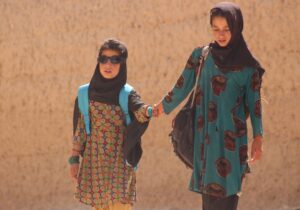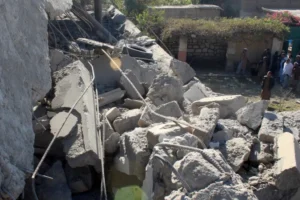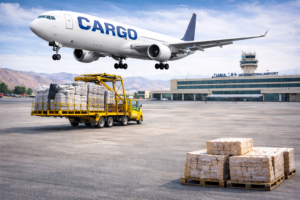KABUL (SW) – Surge in export of coal to Pakistan has led to shortages and price hikes in Afghanistan, traders told Salam Watandar.
A number of coal traders in Kabul told Salam Watandar that the price and export of coal have risen dramatically since the re-establishment of the Islamic Emirate. They add that now, compared to the past, the price of coal in the country has more than doubled and has damaged their business.
“500 to 600 trucks of coal go to Pakistan every day,” said Ahmadullah, a coal dealer. “The price of a ton of coal used to be 7,000 afghanis and now it has reached 17,000 afghanis.”
“Another coal contract has been signed with Pakistan and it will be taken there,” said another coal seller. “It is expensive here and not everyone can afford it.”
“In the past, we used to bring a ton of coal for 8,000 to 8,500 afghanis, and now it has risen to 17,000 afghanis,” said Shir Ali, another coal seller. “I shut down this business because I can not afford it.”
A number of Kabul residents are also concerned about the lack of job opportunities and rising fuel prices, especially linked to coal trade.
However, Esmatullah Burhan, a spokesman for the Ministry of Mines and Petroleum, said that the coal franchise in the previous government was 600 afghanis and the tax was 20 percent, but with the re-establishment of the Islamic Emirate, the royalties reached 3,000 to 4,000 afghanis and the tax has increased by 30%.
He acknowledged the increase in coal exports, but said that a ton of coal would be sold to traders for 3,000 afghanis, and that a ton of coal would cost them about 7,000 afghanis, including taxes and other expenses.
The spokesman for the Ministry of Mines and Petroleum added that a ton of coal was being sold to Pakistan for more than 45,000 rupees and that the reason for the increase in coal exports to Pakistan was the termination of other countries’ contracts with Pakistan.
“We export about 10,000 to 15,000 tons a day,” he said. “We do not have a contract with a specific country for exports. We sell it to Afghan traders and the private sector, and they export it to Pakistan.”
Meanwhile, Mohammad Loghman, a mining engineer, emphasized caution in the mining process, saying that if the mining process is not done professionally, the waste will increase. According to him, at present, the waste during coal mining is 40%, and out of the 60% that is obtained, the neighboring countries get the most profit.
Meanwhile, Taj Mohammad Talash, an expert on economic issues, says the Islamic Emirate should have a special policy for mining. He added that the illegal extraction of coal benefits the government on the one hand, but on the other hand, it does harm.
“The disadvantage is that in winter wood and coal become more expensive, which means that we will have a cold and dangerous winter, and this is to the detriment of the people and the consumers,” added Taj Mohammad Talash.
Earlier, the Ministry of Finance had said that more than 2 million tons of coal had been exported abroad, bringing the total to 4 billion afghanis, as the Islamic Emirate took charge. It should be noted that the Ministry of Finance has banned the export of coal through the Torkham route in order to prevent harm to fruit exporters, but coal exports continue through Khost, Paktia and Paktika to Pakistan.
ENDS










